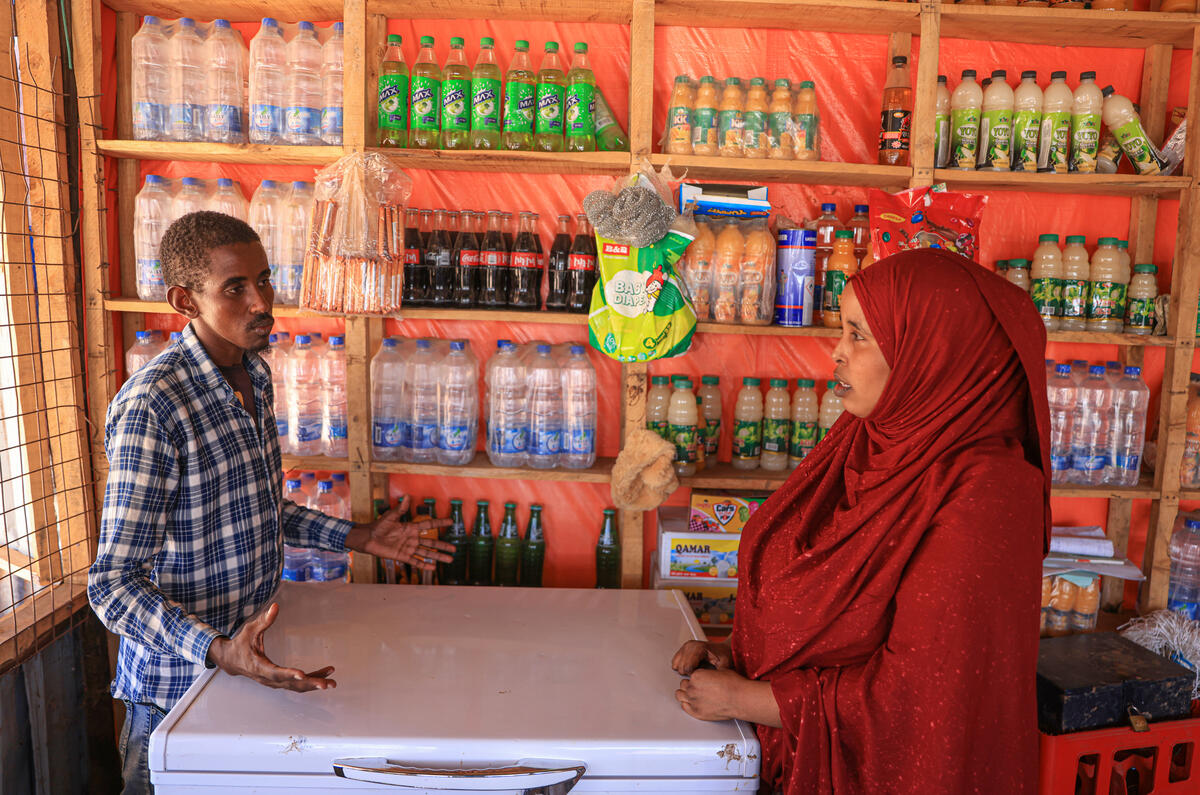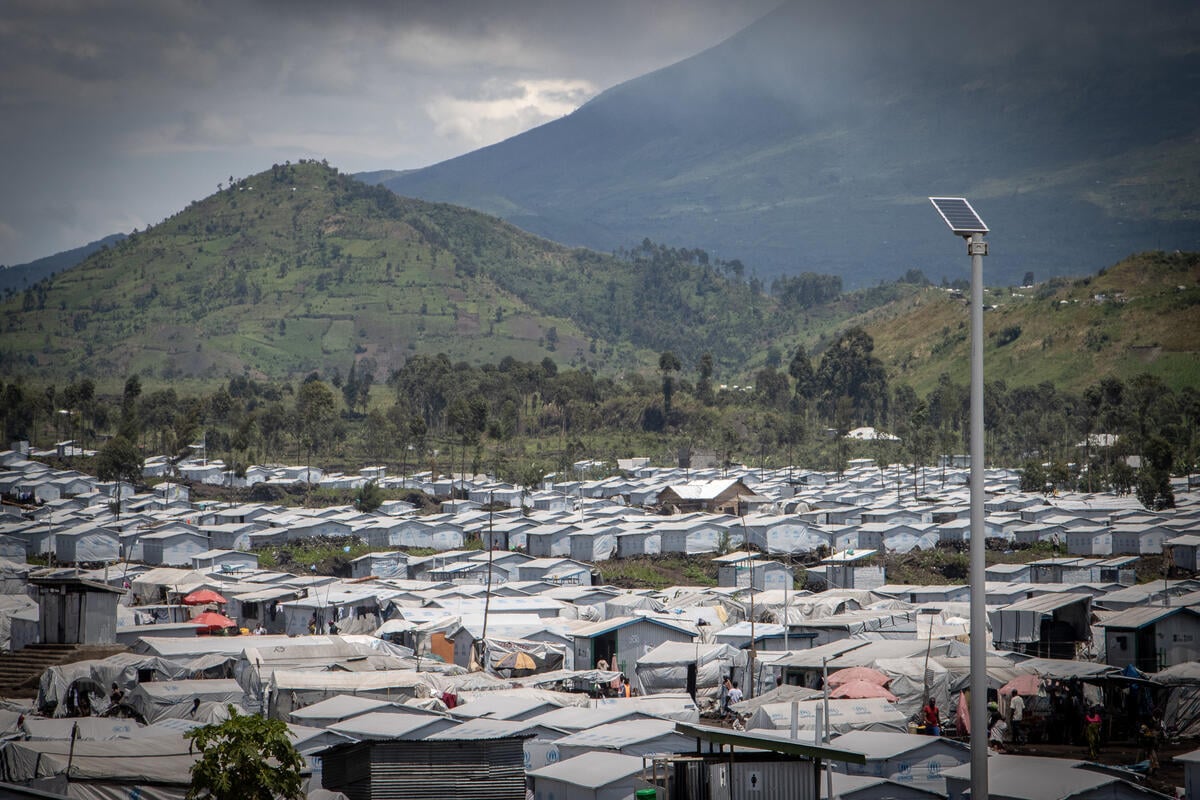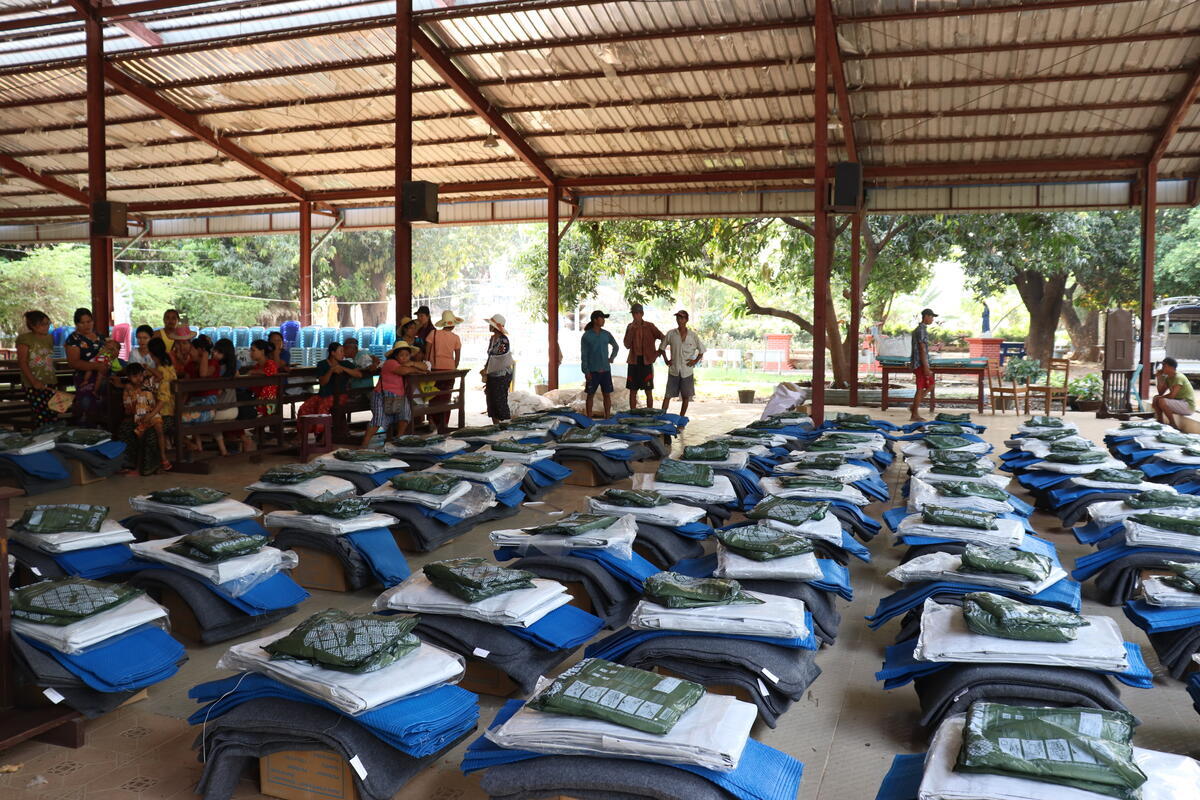Solar cooperative brings light and development to refugees in Ethiopia
Solar cooperative brings light and development to refugees in Ethiopia

Elias Nunow Hirab, 27, is part of a refugee cooperative that operates a solar mini grid in Melkadida refugee camp.
And there is opportunity. It all started with a visionary partnership between the private sector, host communities and refugees.
Most of the over 210,000 refugees in the five camps around Melkadida, in southeastern Ethiopia, were forced to flee conflict and drought in Somalia over the last 12 years. One of them is Elias Nunow Hirab, who arrived in 2011 when he was 14 years old.
“When I first came here, we didn’t know anyone, and my mother started collecting firewood to sell, which kept us fed. [She] was able to pay my school fees, and I started learning English,” he explained. “Then in 2014, [an organization] that supported youth invited us to come and participate in their [training] programmes. I chose electricity because I was interested in technical skills.”
The Melkadida Compact
For Elias and other refugees in the camps, this is where preparation met opportunity: IKEA Foundation had started a partnership with UNHCR, the UN Refugee Agency, two years before, and was beginning a transformative approach in the area focusing on livelihood programmes to help foster socio-economic inclusion, sustainable livelihoods and self-reliance.
IKEA Foundation was one of the first and biggest private-sector players to partner with UNHCR and other aid agencies during the initial influx of Somali refugees. It remains the largest philanthropic investment made through UNHCR in any refugee context over the last decade. This long-term engagement created an unparalleled opportunity to test new approaches for strengthening inclusion and collaboration.
IKEA Foundation’s investments into services and infrastructure have benefited both refugees and host communities, providing valuable evidence that has helped inform Ethiopia’s progressive refugee policies and inclusive local development approach known as the Melkadida Compact.

IKEA Foundation Chief Executive Officer Per Heggenes meets refugees who have benefited from the solar energy programme in Melkadida.
“Residing in camps tends to be very long, very protracted. And the opportunity here was to take a look at how we can deal with that protracted situation in a more productive way,” said Per Heggenes, IKEA Foundation CEO. “How can we do something that makes sure that both the host community and the refugees […] develop and thrive? Energy is absolutely essential for economic development.”
Bringing light
Here in Melkadida’s remote, arid landscape, the brilliance of the sun is a daily reality – one that is being harnessed for the kind of development that Heggenes envisioned.
Elias’s involvement with IKEA Foundation’s sustainable energy programmes began in 2017, when he helped form a cooperative with fellow refugees to install and manage solar-powered streetlights. Because of the electrical training they had received, they were uniquely qualified for the job. Elias and the other cooperative members learned the importance of responding to customer requests for repairs in a timely manner, which quickly won them the respect and support of the community.
When IKEA Foundation decided to invest in the area’s first solar mini grid in 2020, Elias’s cooperative was given the responsibility to help build and operate the new energy system which was designed to supply reliable, clean energy to local households and shops.

Elias's cooperative has been running the solar mini grid in Melkadida since 2020. It supplies reliable, clean energy to local households and shops.
In naming their new business enterprise, Elias and his fellow cooperative members used a word from the Somali language. “The word IFTIIN means light ... and we bring light to the town,” he said. “The [solar] mini grid has brought so much happiness to the community.”
“What we had to do was to start to think about different ways of providing energy through cooperatives, refugees and host communities together,” Heggenes explained. “With energy, you can create businesses. You can make money. You can actually build a community and an economic environment that otherwise wouldn't be the case.”
Creating opportunities
IKEA Foundation’s investment and the cooperative’s hard work are paying off: electricity from the solar mini grid has already reached approximately 31,230 refugee and host community households, helping create dozens of businesses that benefit the entire population. Additionally, two 30-kilowatt solar pumps are bringing water from a nearby river to irrigate 45 hectares of land, helping local farmers improve both crops and food security for families in the Melkadida area.

Elias talks to Zamzam Abdullah, 27, a host community member whose business has benefited from the solar mini grid.
Since 2012, IKEA Foundation has supported the five refugee camps around Melkadida that are being turned into integrated communities with more than US$100 million. Heggenes has been a frequent visitor to the area, interacting with refugees, host communities and local leaders, as well as staying personally involved and invested in the programme’s success.
The importance of private-sector investment and innovation will be a key focus at the second Global Refugee Forum (GRF) in Geneva, Switzerland from 13-15 December.
“The most important aspect of the private sector, especially IKEA Foundation, is to support the community on job creation,” said Elias.
Today, through his job with the solar energy cooperative, Elias can support his parents, his wife and their three children. He works every day with his colleagues to maintain the solar panels, batteries and other equipment, and provide customer service to businesses and households in the area.

Iftih Sharit Mohamed, a host community member, turns on a light in his home which is powered by the solar mini grid.
And IKEA Foundation’s investment in IFTIIN is already proving both sustainable and scalable: Elias’s cooperative has taken their earnings from the initial electrical system and built a second solar mini grid that will serve hundreds of additional customers.
“We have good teamwork, we are very committed […] and we have a good relationship with the community,” Elias said. “We always get support from UNHCR and its partners, and we save for the future.”
Heggenes believes such collaborations are a win for both refugees and the communities that host them. “It's possible to integrate refugees successfully in a way that everyone wins,” he said. “Everyone can create a future for themselves and take care of their own future, which is so important for your feeling of dignity.”
“The [solar] mini grid has brought so much happiness to the community.”










